This past week the judge in the case, Flynn v. US, ordered that the venue will NOT change to DC, and the case will remain in Florida.
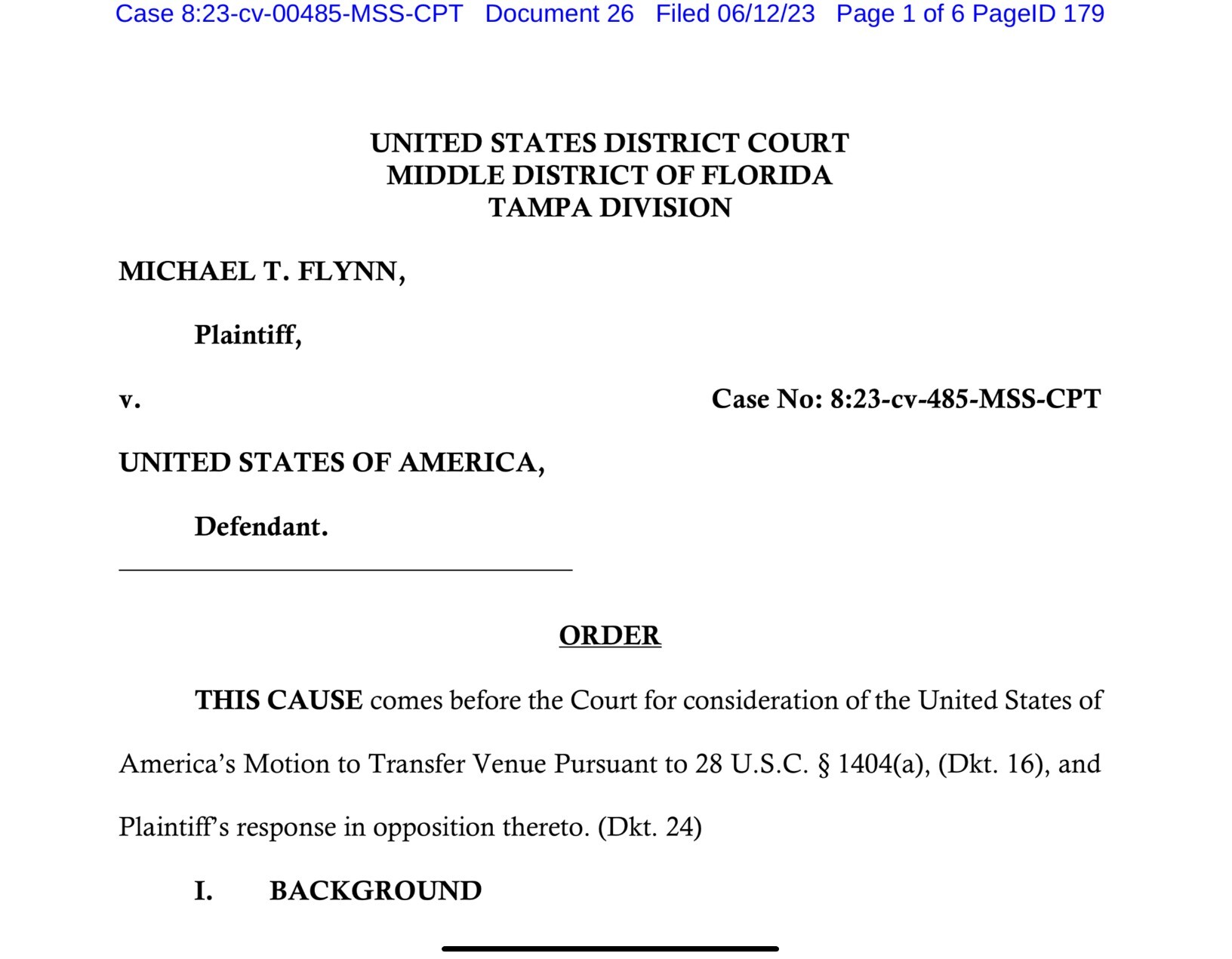
First, the judge gets into legal standard. The power to transfer a case to a different jurisdiction lies squarely in the hands of the judge overseeing the case. A venue can be moved to avoid inconvenience to the litigants, witnesses, and public and to conserve time, energy, and money.
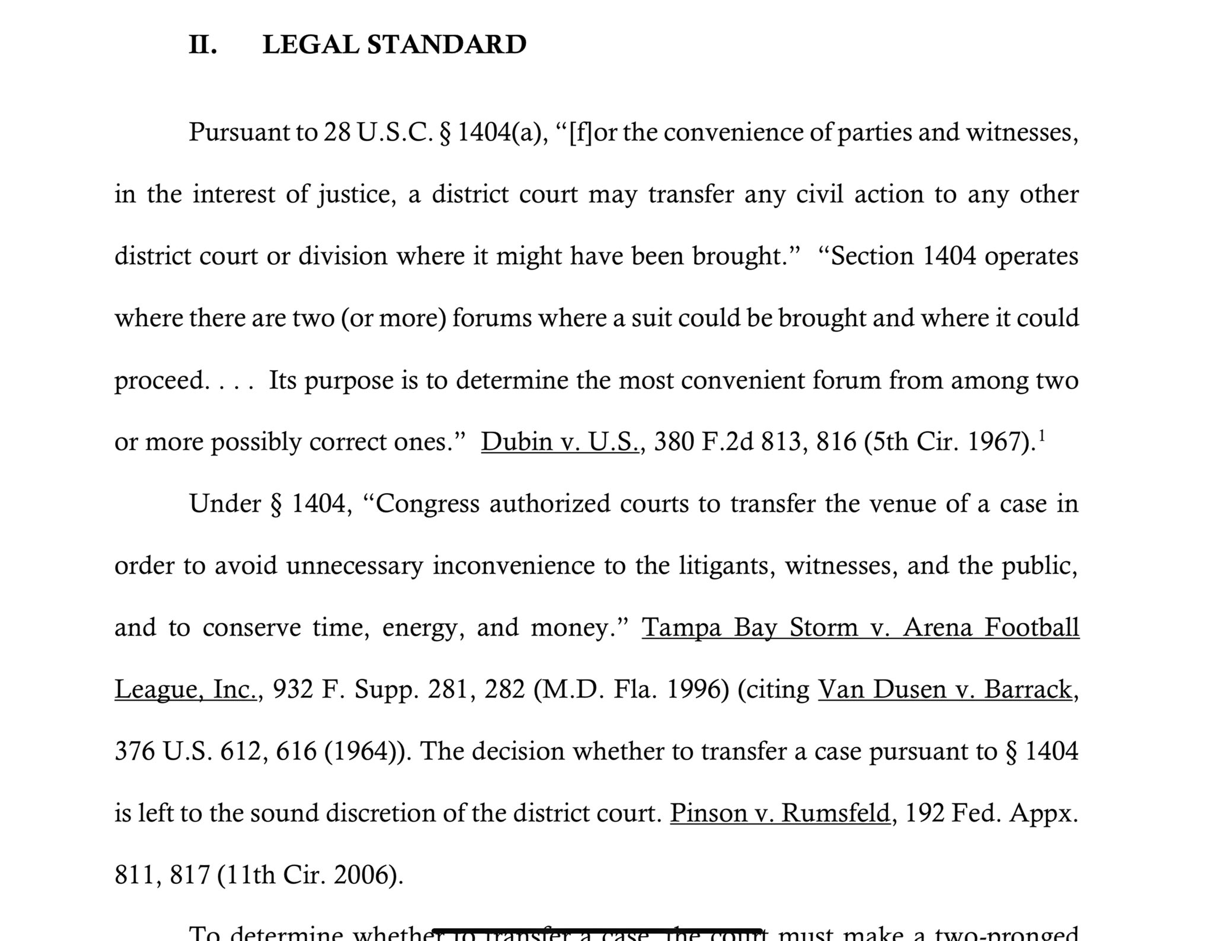
The court needs to consider two factors when determining whether to transfer a case.
1. The court must find that the alternative venue is one where Plaintiff could have originally brought the action.
2. The court must determine whether the transfer serves the interest of justice and significantly impacts the balance of the parties.
A Plaintiff’s choice of venue generally shouldn’t be disturbed unless the Defendant can show that it is *clearly* outweighed by other considerations.
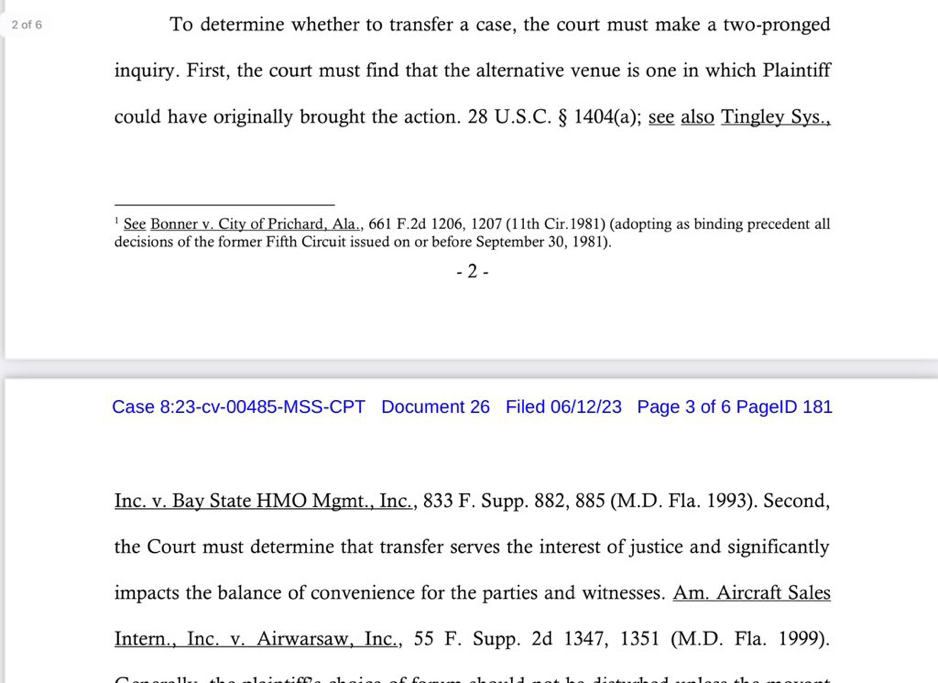

We get the judge's decision relatively early in discussion. When I wrote about this previously, We went through all of the criteria that needed to be satisfied to change venue. I wrote about both the government's argument, as well as Flynn’s argument on these 9 points. I correctly predicted venue would be maintained.
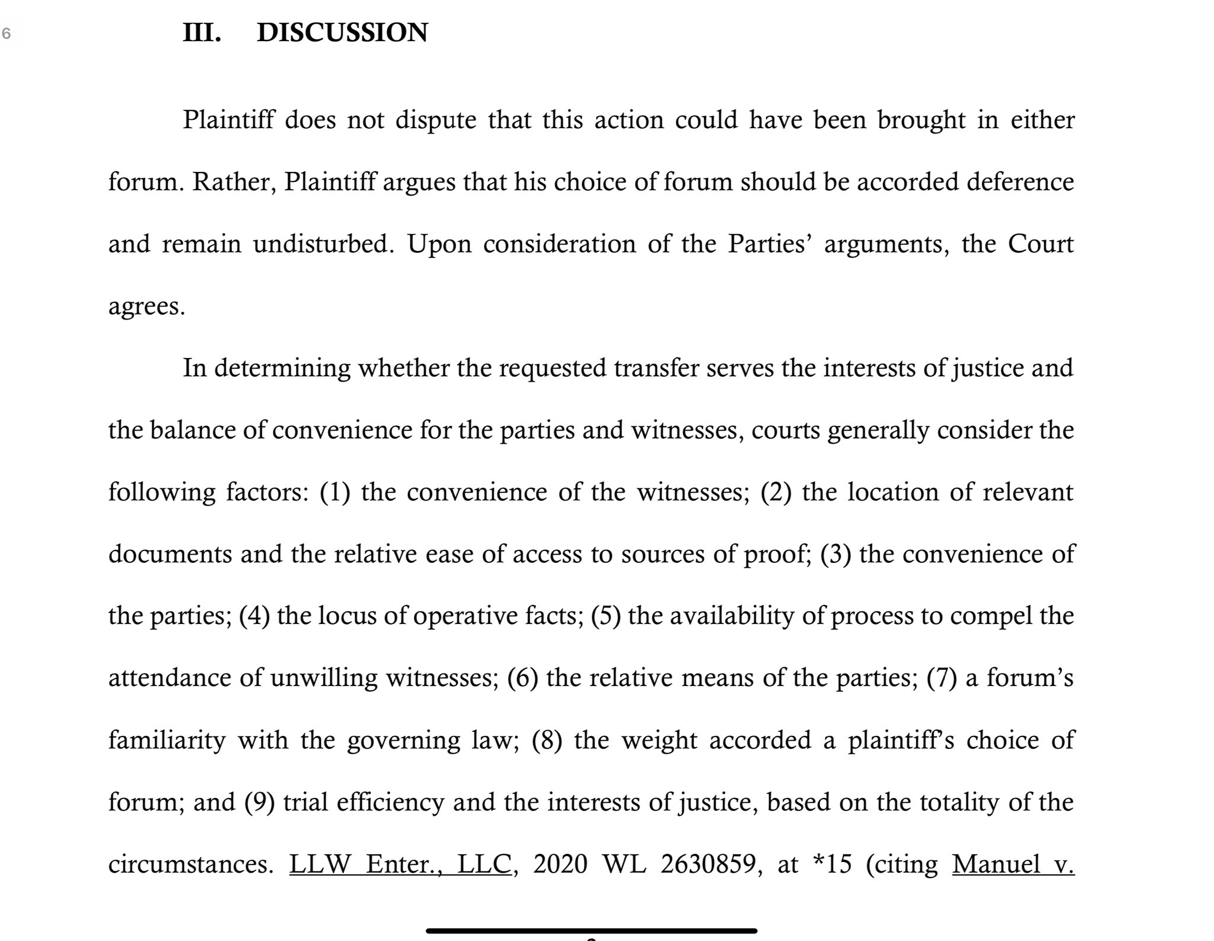
The government argued that 10 of 11 witnesses that were alluded to in the complaint are under the subpoena power of the court in DC, that the claims occurred there, and that DC law applies to the Plaintiff’s claims. The government also contends that Flynn should get less of a say on forum because he moved to Florida AFTER the bulk of the accusations he made occurred.
The court doesn’t think the government did a good enough job arguing those points.
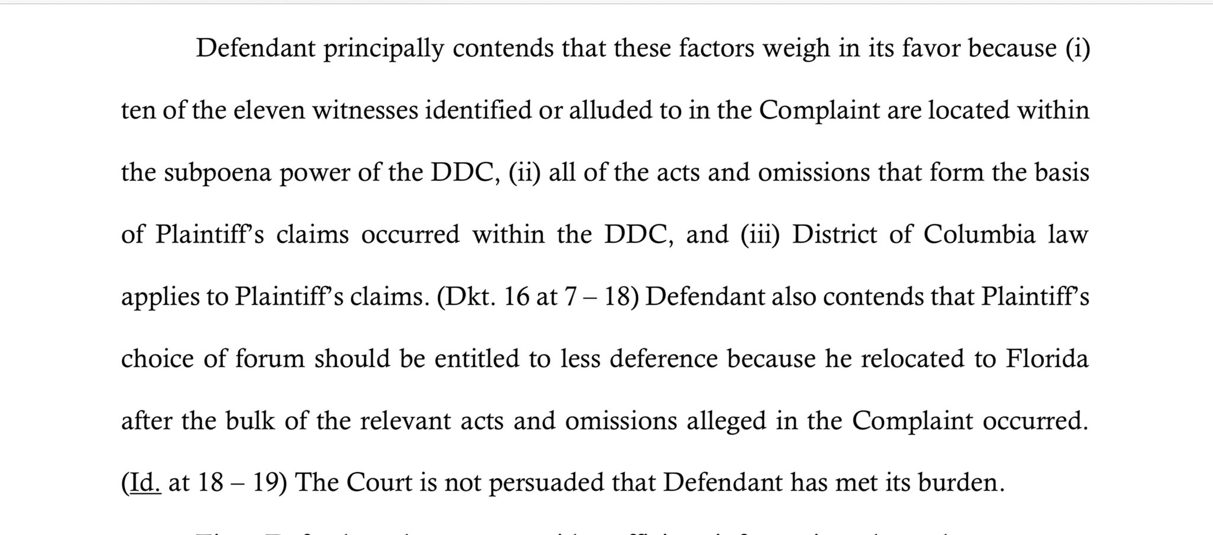
Here is why the court doesn’t think the government did a good enough job:
They didn’t provide enough information about the non-party witnesses they allude to; therefore, the court can’t determine what purposes they would serve in litigation and whether they may voluntarily appear WITHOUT a subpoena.
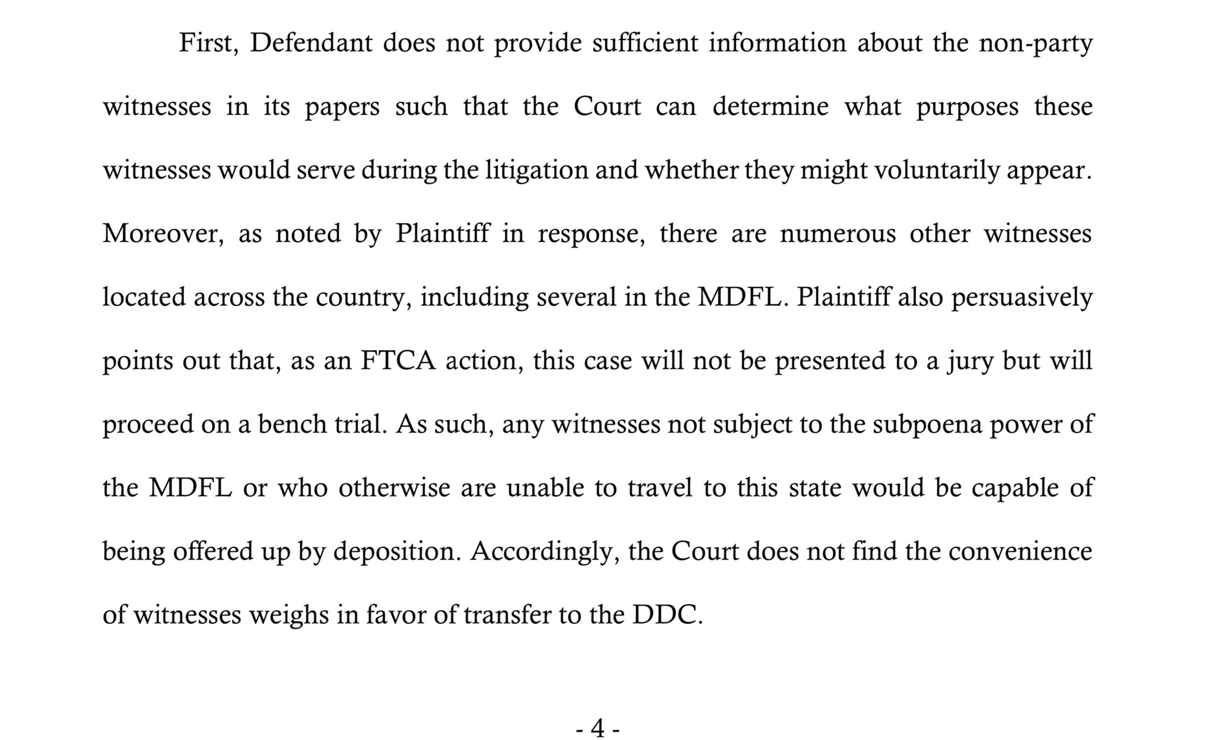
The government basically gave away its tactics here—obviously, they will decline to testify. But courts don’t operate that way—the court can’t just assume that witnesses will refuse to appear to testify in a case. The judge couldn’t base a decision on a hypothetical (even if it is obvious to those of us who follow the government and the people involved in this case.)
Additionally, the case is not being heard by a jury but will be heard at a bench trial. It isn’t as important that witnesses appear in person and can testify virtually—removing that obstacle. Judges don’t need to see witnesses in person in the same way a jury would need to form their opinions.
Here is something I pointed out that would come to bite the government in the behind—the argument that the judge in Florida would be unable to apply law from DC in the court in FL. IMO, it was a smack in the face. Taking from Flynn’s argument in their reply brief, the judge points out here that modern tech removes the document convenience argument and slaps the government, stating that they are fully competent to apply DC law in FL federal court.
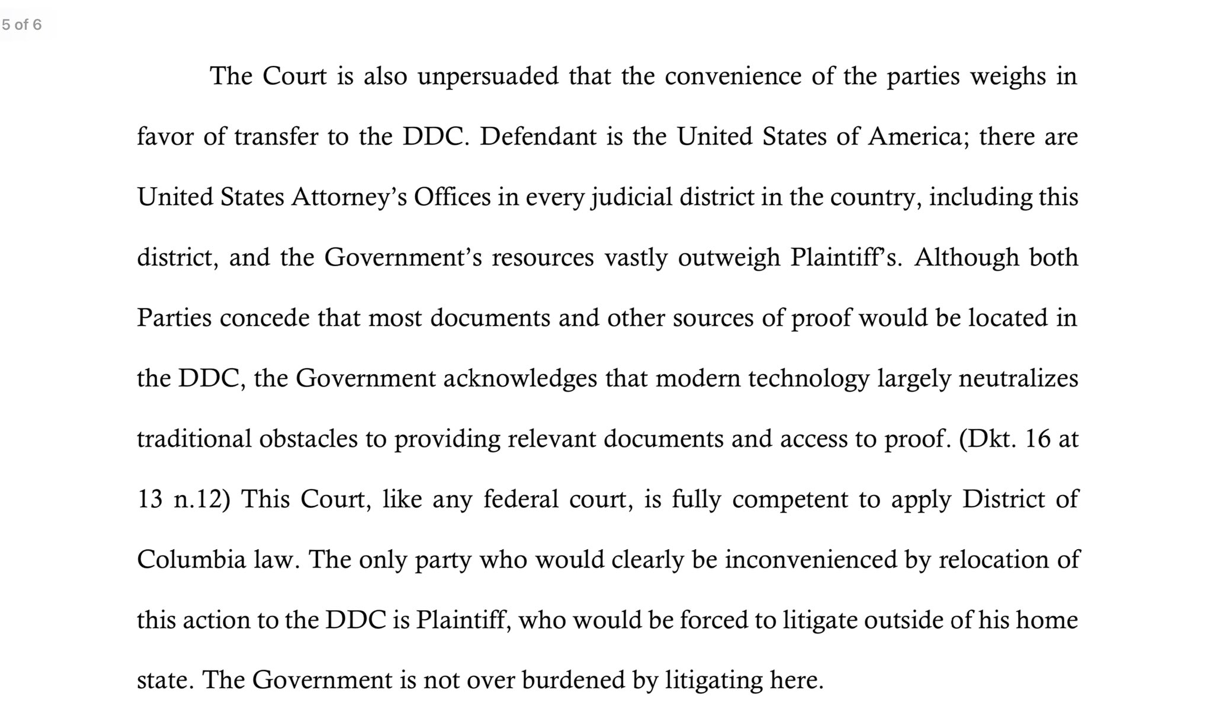
They also reaffirm that the government has offices in EVERY jurisdiction, and the only person who would be inconvenienced would be General Flynn, who would be forced to litigate outside of his home district.
Plaintiff is awarded deference to choose venue. The government didn’t argue well enough to meet the burden for change of venue. The interest of justice weighs against moving the case to DC.
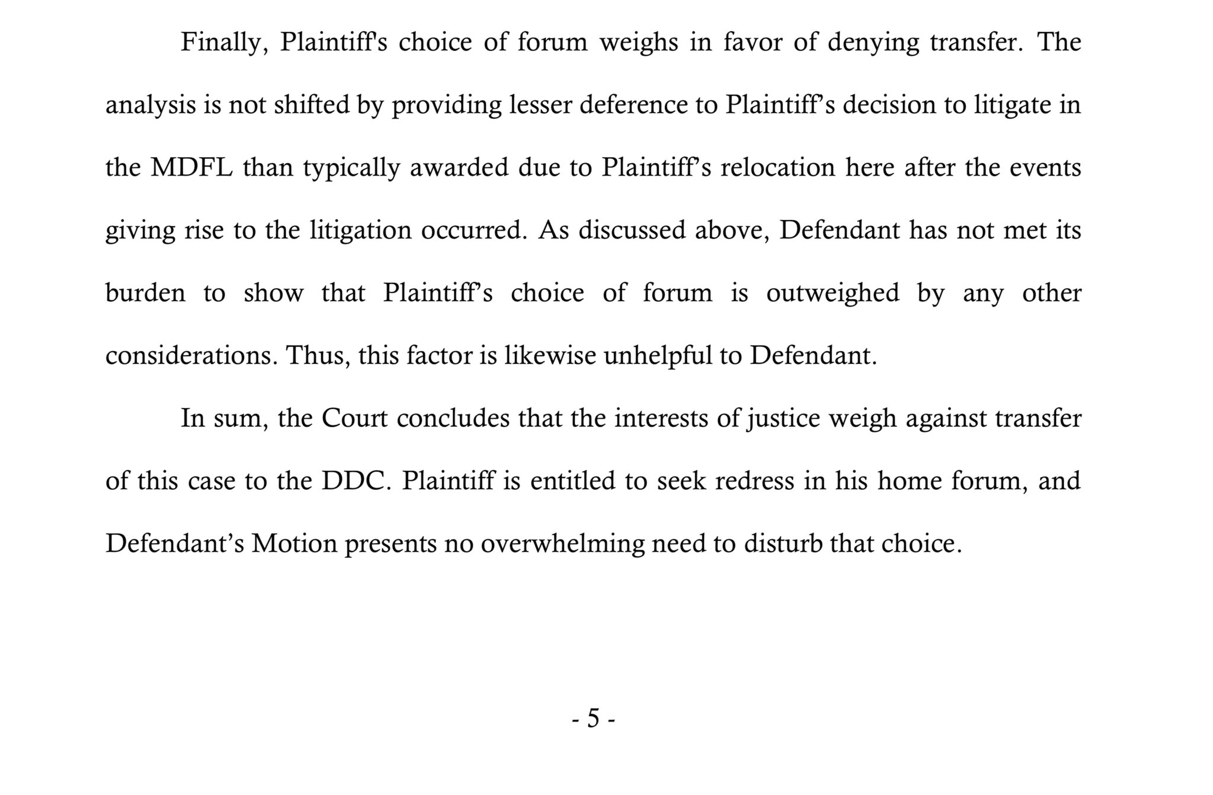
The venue remains the same.
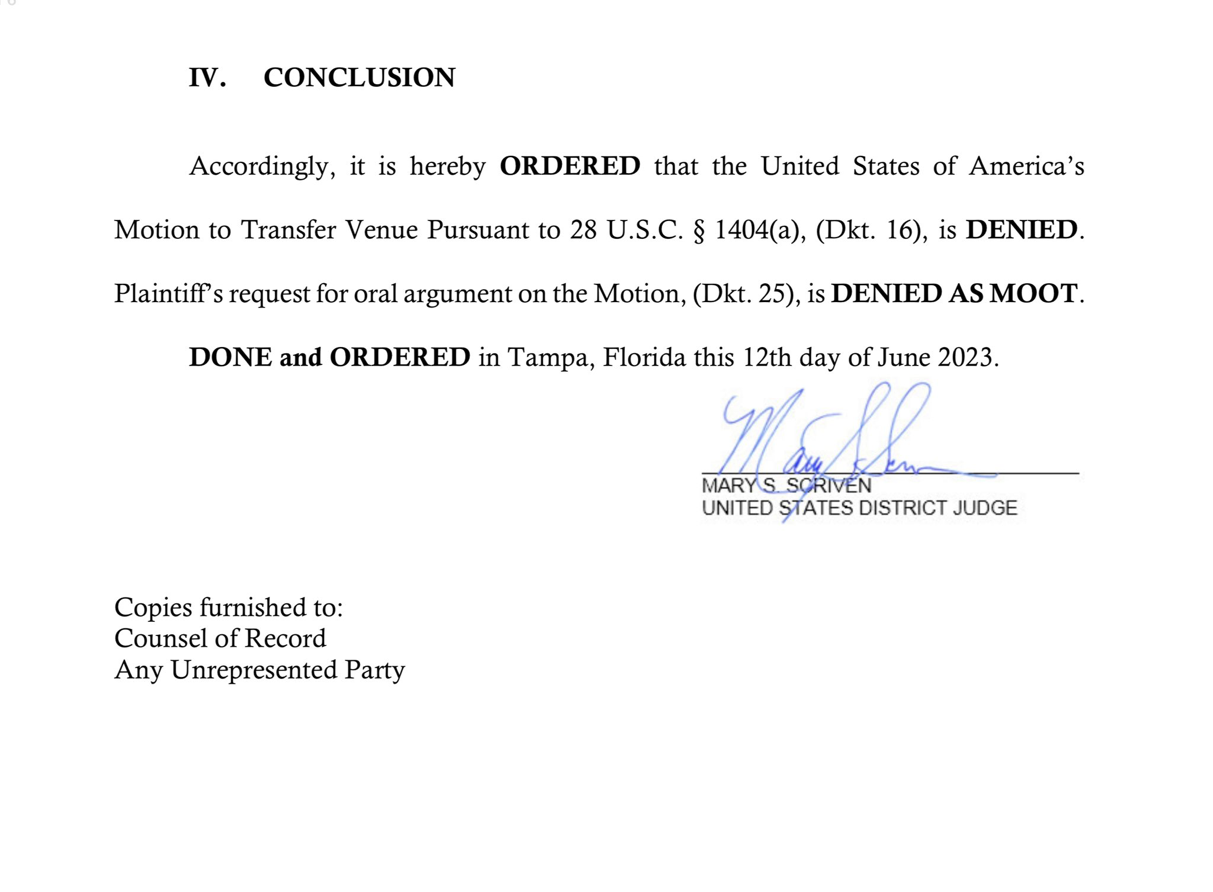
The judge wrote a strong order here, but I wish she would have addressed the bias of the DC judge and circuit, which was very well-detailed.
It isn’t typical for a judge to discuss things like that in an order and “go after” their fellow judges—however, it would have been nice to see.
Perhaps she would have if the rest of the arguments weren’t so compelling as well—she didn’t need to fall back on that one because there were other factors she could capitalize on to order in General Flynn's favor.


